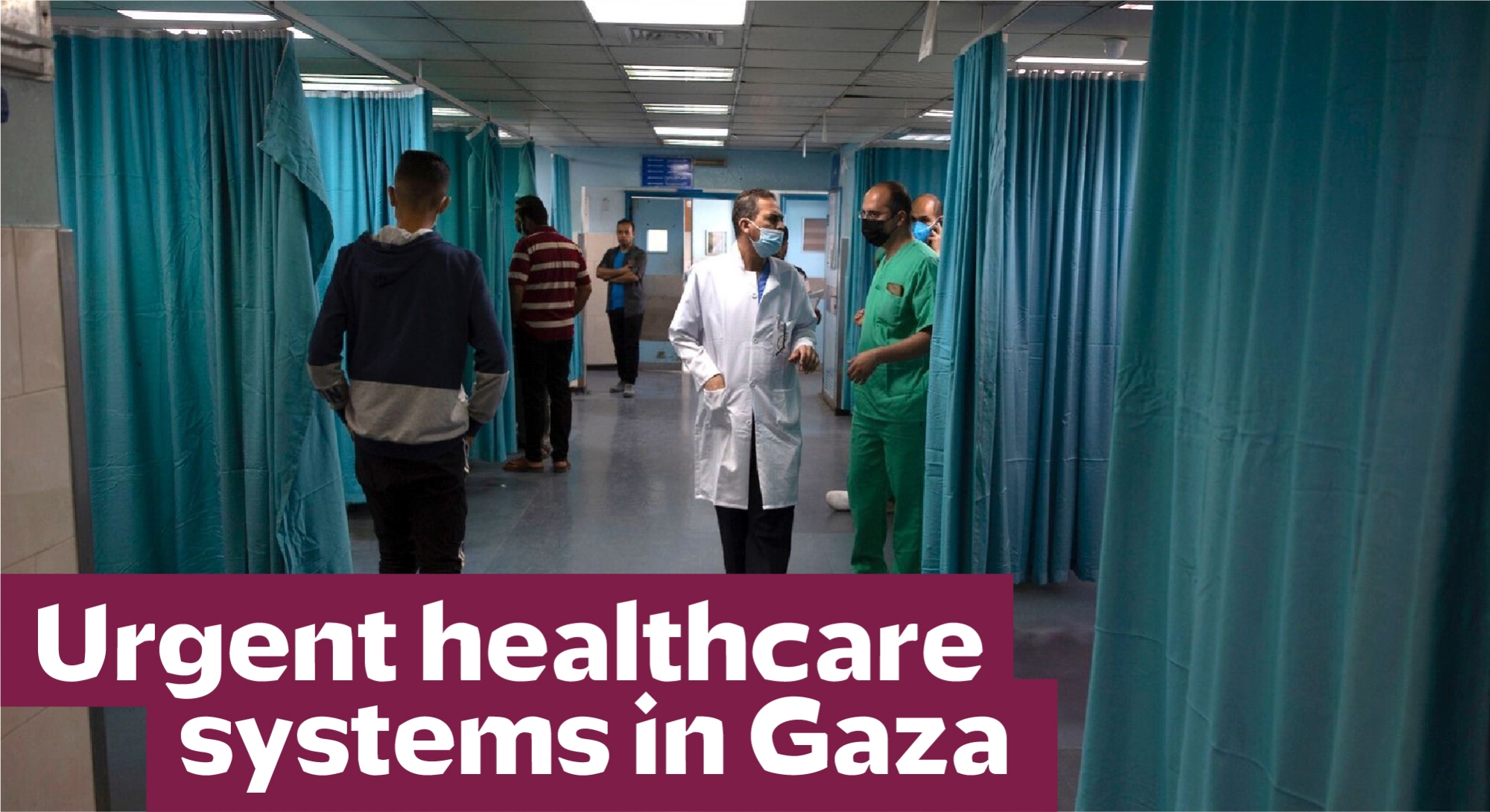
Taawon Leads a Series of Specialized Technical Meetings on Community-based
Mobile Health Care Delivery Solutions for Gaza during and after the Attack
Taawon, in partnership with the Center for Middle Eastern Studies at Harvard University, the Carnegie Endowment for International Peace, the American University of Beirut, the Global Health Institute at the American University of Beirut, and the Center for Global Health Delivery at Harvard Medical School, held a series of specialized technical meetings from July 27 to 29, 2024, in the Jordanian capital, Amman, with simultaneous participation from Cairo, Egypt, as well as virtual participation, and with the involvement of many specialized local Palestinian institutions and international and UN organizations.
Over the course of three days, participants discussed the challenges facing the delivery of healthcare services in Gaza during and after the attack, amidst the collapse of the health sector and the destruction of its infrastructure due to the attack. Estimates indicate that the current health system, including hospitals and health centers that were destroyed, will take a long time to recover and resume basic medical care for citizens. This necessitates identifying and implementing alternative solutions to provide medical care during the recovery period, ensuring these solutions are adaptable to the evolving and uncertain future working conditions.
Participants explored the potential for adopting a decentralized system of mobile health units and clinics as a viable solution for the continued delivery of diverse medical care services. They also examined related local and international experiences with mobile health units, engaging in detailed discussions on the advantages and disadvantages of these models. Furthermore, they evaluated the feasibility of adapting and implementing these mobile health solutions to meet the specific needs and challenging working conditions in Gaza, both during and after the attack.
The participants emphasized the ability of Palestinian health institutions to adopt and implement the decentralized system of mobile health units in Gaza, provided the necessary resources, including funding and technical support, are available. Additionally, they highlighted the importance of developing the capacities and skills of healthcare workers across different fields to meet the needs of mobile units and the public, considering the new challenges arising from the attack, such as injuries, disabilities, and the spread of infectious diseases.
The discussions also underscored the need for a body or mechanism to organize the efforts of institutions operating within the mobile health care system, ensuring coordination under a governance framework involving relevant Palestinian authorities. Moreover, there was a strong call to intensify advocacy and pressure on the international community to contribute to a ceasefire and allow humanitarian and health institutions to perform their duties in safe and suitable working conditions in Gaza.
The meetings also addressed the critical shortage of drinking water and sanitation services, which has led to the rapid and extensive spread of diseases, exacerbating the pressure on the health sector. Several temporary solutions were proposed for consideration by the relevant authorities to mitigate this crisis until the necessary facilities can be adequately rehabilitated.
Additionally, the discussions highlighted the catastrophic effects of the ongoing attack on certain marginalized segments of Palestinian society, including the estimated 25,000 orphans. Taawon presented an overview of its newly launched comprehensive orphan care program, building on its distinguished efforts in this field. The program, implemented in partnership with several Palestinian institutions, offers a holistic range of services, including healthcare, social welfare, education, protection and psychological support, and humanitarian needs.
It is noteworthy that Gaza has been enduring an unprecedented humanitarian crisis over the past nine months, with continuous attacks resulting in the deaths of approximately 40,000 people, including around 24,000 women and children, and over 90,000 injuries. More than 1.7 million Palestinians, or 75% of the population, are currently displaced within the Gaza Strip. The health sector has nearly entirely collapsed, with about 84% of health facilities, including 29 hospitals and health centers, either damaged or destroyed. The acute shortage of medications, medical supplies, and health personnel has exacerbated the crisis, severely deteriorating basic health services, including chronic disease treatment, mental health care, maternal and child health, surgical needs, and infectious disease management.
This meeting is part of a series of specialized meetings led by Taawon across various sectors, bringing together experts from Palestinian and international entities. These meetings aim to discuss and present the Palestinian perspective on the critical needs and priorities for rebuilding Gaza and developing services in the West Bank, ensuring alignment with the specific context and challenges faced by Palestinians.
"Taawon" (Welfare Association) is a non-profit, civic organization founded in Geneva in 1983 by a group of Palestinian and Arab economists and intellectuals. Today, Taawon stands as one of the largest organizations operating in Palestine and the diaspora camps in Lebanon, reaching over a million Palestinians annually, half of whom are women. Since its establishment, Taawon has invested nearly 920 million dollars in developmental and relief programs across its areas of operation.
